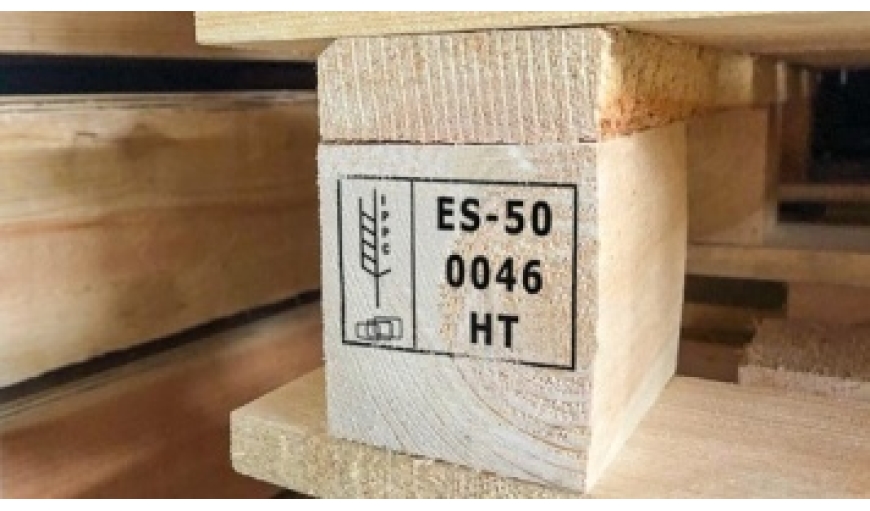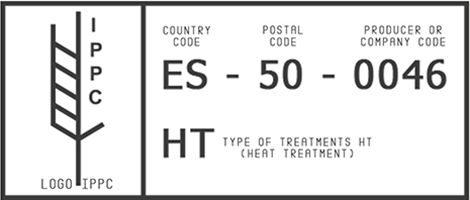
Published 10/11/2021
Apparently the pallets are simple and simple pieces, but the truth is, that they are an essential element to transport and store merchandise. Pallets can travel thousands of kilometers and travel across many countries and even continents throughout their useful life. So couldn't they carry some risk to public health and the sustainability of ecosystems? The answer is in ISPM-15. (NIMF-15)
What is ISPM-15?
More commonly known as IPPC or fumigation, it is the International Standard for Phytosanitary Measures No. 15 established by the FAO (Food and Agriculture Organization) to regulate the wooden packaging used in international trade. All packages marked with the NIMF-15 (ISPM-15) seal have undergone a heat treatment, the most common is known as HT (HeatTreatment).
What is it for?
Its main objective is to establish phytosanitary measures to prevent the spread of pests and diseases to other countries and continents through wooden packaging. In addition to a public health issue, pests can also negatively affect plants, forests and native ecosystems.
This type of wood has been shown to present a high risk of both the introduction and spread of pests and diseases, and it is common to reuse, recycle or repair dunnage, so it is in constant circulation and after a while it is difficult to identify the true origin of the part and determine the possible risks.
What does it consist of?
ISPM-15 guarantees that the wood has been treated with a specific thermal treatment (HT) that consists of heating the wood (including its core) until it reaches 56 degrees and maintaining this temperature for at least 30 minutes. Once finished, the pallets go to a drying room. 56 degrees Celsius is the temperature that allows to eradicate a wide variety of pests.
In addition to eliminating any type of insect or larva that nests in the wood, this treatment also increases the resistance of the pallet to the elements and reduces humidity and mold formation.
How to know if the wood has this certification?
To check if the pallets, crates and other wooden packaging are properly disinfected and have this certificate, we must check if they bear the following seal:

Glassmop is IPPC certified for all its wooden crates and pallets.
What countries are subscribers to ISPM-15?
Due to the great importance of protecting ecosystems, more and more countries control that this regulation is in force. In addition, countries that are party to the International Plant Protection Convention (IPPC) require compliance with ISPM-15 in their imports and exports.
The Ministry of Agriculture and Fisheries, Food and Environment offers an updated list of countries that require compliance with ISPM-15:
- America: Argentina, Bolivia, Brazil, Canada, Colombia, Chile, Costa Rica, Cuba, Ecuador, United States, Guatemala, Guyana, Honduras, Mexico, Nicaragua, Panama, Paraguay, Uruguay, Venezuela, Peru, Trinidad and Tobago and the Republic Dominican.
- Asia: China, Japan, South Korea, the Philippines, Hong Kong, India, Indonesia, Malaysia, Singapore, Vietnam, Sri Lanka and Taiwan.
- Africa: Egypt, Nigeria, Seychelles, Syria, Cameroon, Eritrea, South Africa and Malawi.
- Middle East: Israel, Jordan, Lebanon, Oman and Turkey.
- Oceania: Australia and New Zealand.
- Europe: the countries of the European Union and UK, Norway, Switzerland, Croatia, Ukraine and Belarus. It is also taken into account for transport to the Canary Islands.
Check the updated list of countries that require compliance with ISPM-15.
